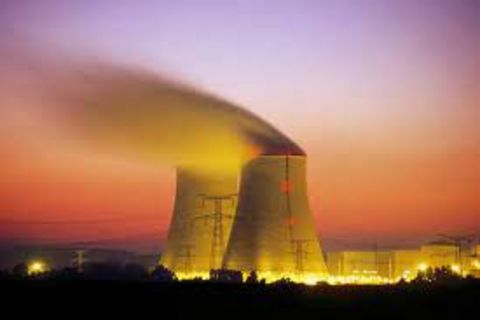Nuclear units generate 25% of global clean electricity: report

Globally, the world's nuclear reactors generated more than 2500 terawatt hours (TWh) of electricity for the sixth year running. Nuclear generation supplies around one-quarter of the world's clean electricity, second only to hydropower.
However, with output totalling 2545 TWh, generation in 2022 was just over 100 TWh lower than in 2021, revealed The World Nuclear Association's World Nuclear Performance report.
Three events in Europe contributed much to this reduction. First, a programme of welding repairs, as well as other outages, reduced generation by 81 TWh in France.
Second, the closure of three of Germany’s remaining six reactors at the end of 2021 deprived that country of a source of reliable low-carbon generation and prolonged its continuing use of fossil fuels.
Third, the war in Ukraine resulted in the shutting down of the six units at the Zaporizhzhia nuclear power plant.
In combination, these three events resulted in a reduction of electricity output in France, Germany and Ukraine of 134 TWh, compared to 2021, the report said.
Looking forward, nuclear generation is expected to recover in France over the next two years as reactors return to service. However, the shutdown of the last three reactors in Germany in April 2023 and the ongoing conflict in Ukraine will continue to impact overall nuclear generation in Europe.
In contrast to Europe, nuclear electricity generation in Asia increased by 37 TWh last year. Over the last 10 years, nuclear generation in Asia has more than doubled and has now overtaken nuclear generation in West and Central Europe. With three-quarters of the reactors that are under construction in the world in Asia, this is a positive trend that is set to continue.
Elsewhere, in Africa, North America and South America, nuclear generation last year was little changed from in 2021.
At the same time, nuclear generation should be increasing much more rapidly if we are to achieve global goals of decarbonisation and provide reliable and secure access to clean energy to everyone, everywhere, the report said.
Realising this will require to maximise the operation of our existing nuclear power plants, as well as increasing the rate of construction of new reactors.
Six new reactors were connected to the grid in 2022: two reactors in China, and one each in Finland, Pakistan, South Korea and the UAE.
Construction started on eight reactors: five in China, two in Egypt and one in Turkey. These additions are welcome, but a far faster rate of construction and commissioning will be needed, at least a tripling of nuclear capacity worldwide, to achieve net-zero greenhouse gas emissions by 2050, according to the report.


